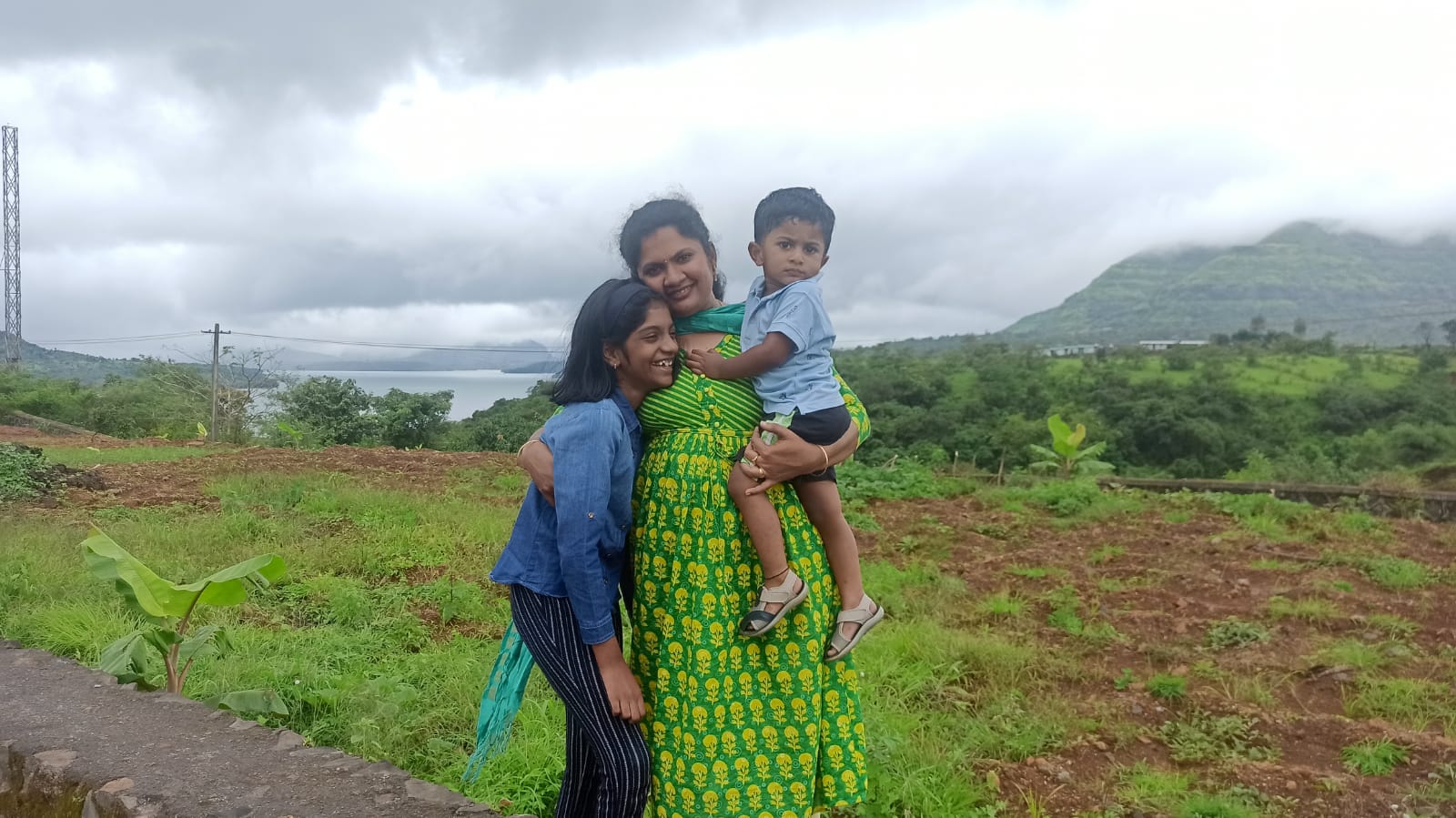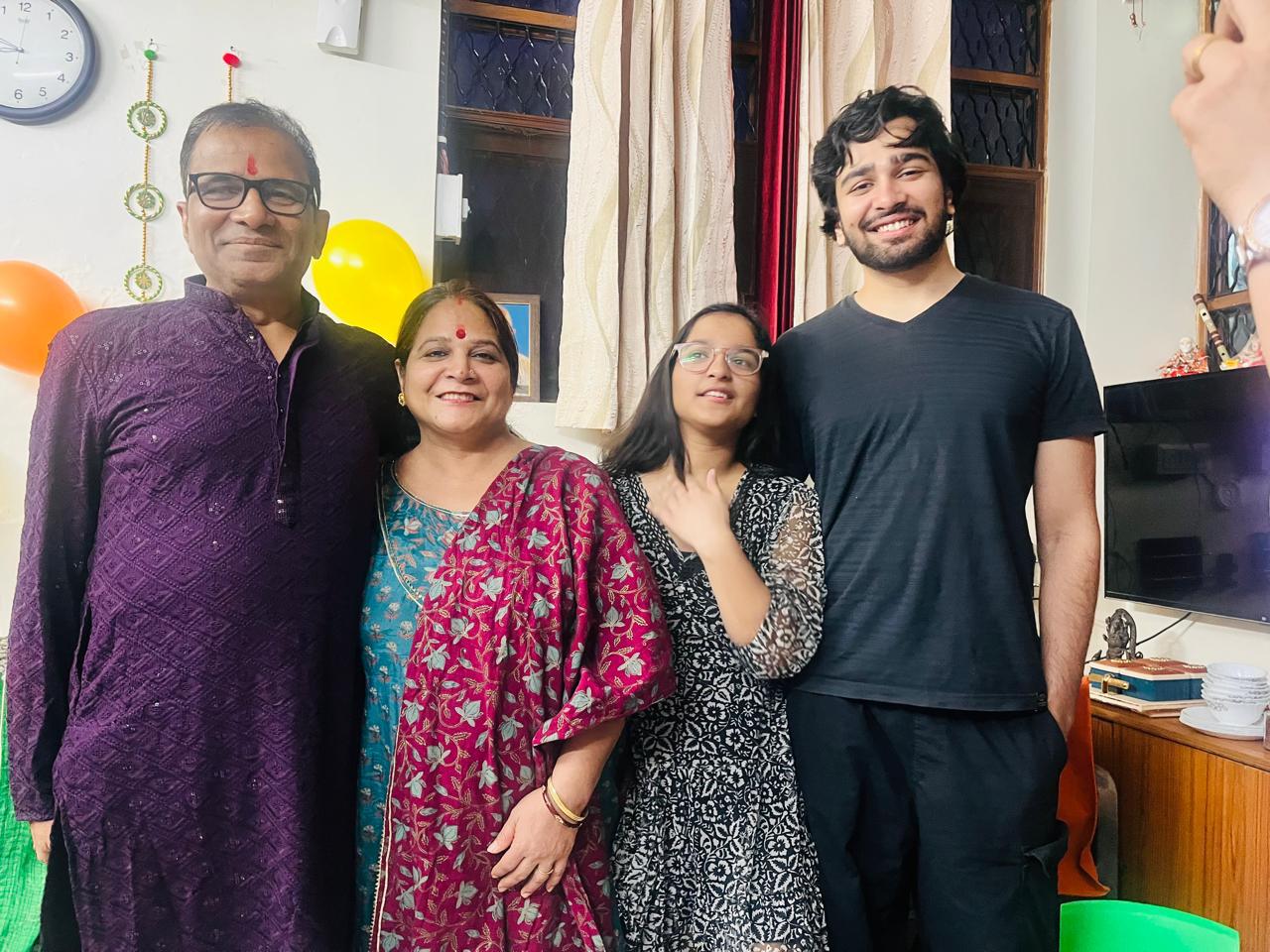Parenting is a unique and evolving journey, filled with joys and challenges. In this conversation with Aparna Rajendran, a mother of a 12-year-old daughter and a 5-year-old son, she shared her experiences, lessons, and insights on how she navigates the rewarding and sometimes difficult road of raising children.
A Journey of Surprises and Learning
We asked Aparna about her parenting journey, and she shared the following:
"I became a parent 12 years ago, and it was an unexpected surprise for me. The pregnancy wasn’t planned, so everything was a big surprise, but it was definitely a blessing. When my son was born, the pregnancy was planned, but there was a significant age gap between my two children. Managing their different needs became challenging, and that’s when I began diving deeper into parenting. It was easier when my daughter was younger and I was only caring for her, but having two kids with such a large age gap felt like a whole new ball game. I had to learn a lot to understand how to balance their needs."
When asked about some of her biggest parenting challenges, Aparna shared:
"As I mentioned, the age gap between my children is the biggest challenge. Right now, my older child is going through adolescence, so it’s a very turbulent time with mood swings, bodily changes, and hormonal shifts. At the same time, my younger one is still at an age where tantrums are common because he can't always express his needs clearly. Another challenge is sibling rivalry—my elder daughter sometimes feels like I’m always supporting the younger one, which creates tension. And since I’m a single parent, while my family supports me, I handle everything else on my own. It’s a tough journey, but it’s also made me more patient and understanding, and ultimately, it’s helped me grow."
The Influence of Her Own Parents on Her Parenting Style
Reflecting on lessons learned from her own parents, Aparna explained:
"There are definitely things I’ve learned from my parents, who are both teachers. They were very focused on discipline, and we were raised with that strong sense of structure. However, our generation is a little more relaxed, and we don’t want to be too strict. There are clashes between what my parents taught me and how I approach parenting. My parents have always been very traditional, with rules about no junk food and no extra screen time. But I’ve had to adjust and be realistic. This generation is exposed to a lot of things, and we need to give them freedom, but within limits. I believe in discipline with freedom—providing structure but allowing children to explore and grow within it."
On what lessons she consciously tries to avoid from her own upbringing, Aparna shared:
"One thing I consciously try to avoid is the physical punishment that was sometimes used by my parents. My mother used to believe that a ‘little beating’ was necessary to teach boundaries. While that was normal in their time, I don’t think it’s effective or healthy. It can be traumatic for children. I’ve tried to avoid that completely. It’s not easy, as sometimes my younger one even hits me, but I try my best to stay calm and avoid reacting that way. I believe in understanding the root cause of their behavior instead of resorting to physical punishment."
Encouraging Individuality in Children
Aparna then emphasized the importance of encouraging individuality in children:
"I would advise parents to try and connect with their children emotionally. Instead of controlling them, understand what they are feeling and why they are acting the way they are. When my second child was born, I realized I had lost my connection with my first child. I was so focused on the newborn that I didn’t realize how much my older child needed me. That loss of connection triggered a lot of behavioral issues. It wasn’t that she wasn’t listening—it was that I wasn’t connecting with her anymore. So, the most important lesson I’ve learned is that emotional connection with your child is absolutely crucial."
How Parenting Changed Her View of Herself
How Becoming a parent also changed she viewed herself and her goals:
"Becoming a parent definitely changed my perspective. I used to think of myself as a very patient and understanding person, but having children tested my patience in ways I never anticipated. There were moments when I lost my temper, sometimes I even shouted at my daughter, but I realized I’m not the person I thought I was. It was through a lot of introspection that I grew. I became more self-aware and compassionate. It also made me realize the value of my parents, and how I had taken them for granted. Parenting is not an easy role, and it’s one that has truly transformed me into someone I never imagined I’d be."
Skills and Traits Developed Through Parenting
Aparna spoke about the important skills she’s learned since becoming a parent, such as time management and emotional regulation.
"Time management is one of the key skills I’ve had to develop. Everything revolves around their schedules, so I had to learn to manage my time effectively. Another skill is emotional regulation—sometimes I feel like I’m on the edge, but I’ve learned to pause, breathe, and think before reacting. It’s about staying calm even in the most stressful moments. It’s also important to communicate effectively with them, and that takes patience. My children have also taught me compassion; both of them are very compassionate themselves, and that’s been a huge source of support for me, especially when I went through a phase of depression after my second pregnancy. My daughter became my pillar of support, and that taught me that even young children have a remarkable ability to be understanding and emotionally supportive."
Motivation to Join Brightlife
Aparna explained what initially drew her to Brightlife and how the program’s genuine approach appealed to her.
‘’I saw Krutika's in introduction and it's something very I didn't feel like they're selling something or some to make people purchase something. I felt like they're sharing something that could benefit people. So that's what motivated. Usually I don't go by people promising things. I understand what value are they giving to us. It was very sweet, very understanding and I had missed one session and immediately I got the recording and the whole thing was very structured and very planned. That's what motivated me in the takeaway which you give for people after the sessions that also helps a lot.”
Key Parenting Insights Gained from Program
Aparna shared the key insights that resonated with her during the Brightlife program.
"The parenting styles, especially understanding how different approaches can work for different children, helped me a lot. Learning to connect with my children emotionally, rather than just managing behavior, has been one of the most powerful takeaways from Brightlife. The way you communicate with your child can make a huge difference, and that’s something I’ve added to my parenting toolbox."
Mindset Shifts That Have Transformed Her Parenting
Aparna reflected on the mindset shifts she’s made since joining Brightlife, particularly in how she now responds to challenges.
"I'm a more conscious parent, I should say, instead of just going with the flow or taking each day as it comes. My actions are intentional, and I take a step back. If I'm getting triggered, I know I need to take a step back without reacting. I just respond to it rather than reacting. That has stuck with me. I'm very conscious about my style of parenting. Sometimes it's extra screen time, one more ice cream, or one chocolate at night."
Aparna also shares "So, what has stuck with me is this: If something is going to affect their health or their life, I need to draw a line there instead of being permissive and letting them do whatever they want. That is something that has stuck with me, and I still consciously use it even today. I think it's been more than eight months since I attended the session. I still use it, and I've also attended some career counseling trainings. There’s a lot of knowledge I’ve gained from those, and what I learned from Brightlife has added value to that as well."
Advice for Other Parents on the Parenting Journey
Aparna shared some valuable advice that she wishes more parents knew.
"Something new I’ve learned is that parenting is a journey, not a destination. It’s a complete journey, so we should keep learning. And one thing I wish more people knew is that we’re not supposed to pass on our difficulties to our children. I’m not sure how to express it exactly, but in psychological terms, our wounds and our traumas need to be understood and dealt with first. We need to regulate our emotions before we can prioritize our child’s needs. It’s important to prioritize them, especially in the first six years of their life. It’s not necessary to sacrifice yourself or your career, but learning to balance everything is key."
Topics Aparna Would Like Brightlife to Explore in Future
Aparna shared topics she would love Brightlife to cover in future sessions.
"I’ve heard about emotional regulation, but I really don’t know what other skills are needed. That topic would be interesting to explore. Emotional intelligence is another big game changer—not just in parenting, but in work life as well. You have to learn to be emotionally intelligent in order to be successful.
Also, balancing different age groups is a challenge for me personally. Managing two or three children, even if they are the same age, is not easy. So, how do you balance two kids without making the other one feel hurt? How do you manage sibling rivalry and help them bond without jealousy? In my personal life, I used to feel a lot of jealousy towards my sister, thinking that everyone was supporting her more than me. I see the same thing happening with my daughter. Even though I’m not intentionally doing anything to prioritize my younger son, she still feels like he is more important to me. It’s a very different challenge that many parents face.
These topics would be very interesting to explore further. If I come up with any other topics, I’ll share them with you later on."


.jpeg)

.jpeg)
